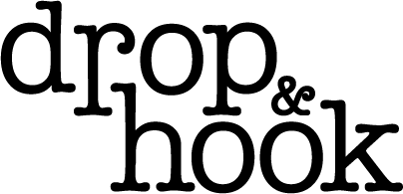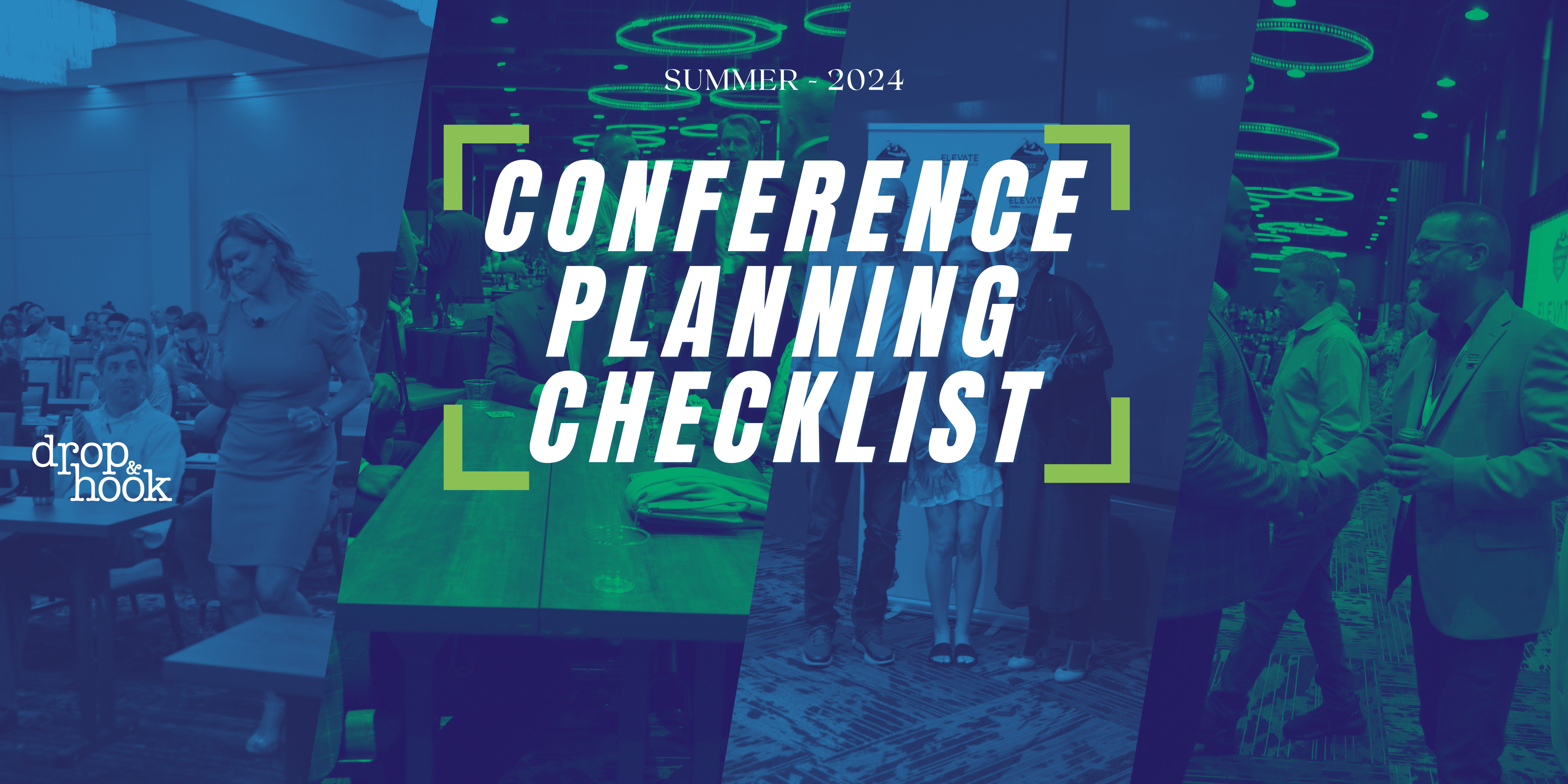Conference Planning Checklist
Conferences and events continue to play an oversized role for transportation and logistics marketing and sales professionals. Most recently our team has been busy conducting follow-ups with our brokerage and freight tech friends after the recent TIA 2024 Capital Ideas Conference while planning ahead for the 100th anniversary celebration of TMSA—the Transportation Marketing & Sales Association at the annual TMSA ELEVATE conference this June in New Orleans. Meanwhile, our clients are crisscrossing the map with industry events including Manifest, Modex, American Trucking Association, Truckload Carriers Association, RILA, Home Delivery World, FreightWaves Future of Supply Chain, and many more! In an industry built on robust relationships, these in-person experiences can make or break your bottom line. But in an era of budget constraints and careful decision making you may be looking at your marketing budget and wondering, am I getting the most for my money?
We have seen the ROI of events firsthand here at Drop & Hook—both in making our own new connections that bloomed into business for our outsourced marketing services and in tracking attribution as our clients collected valuable CRM contacts. Conferences are a classic because they work!
But as with many things, seeing success and measuring results starts with one simple trick: going in with a plan. If you’re looking to get more strategic with your event marketing spend you’re in luck, here’s a handy checklist built from our experience detailing how you can make your marketing efforts go the extra mile before, during, and after the conference season.
- Go In With a Goal
It all starts here (or at least it should!) Before you even consider saving the date for your next event make sure your marketing team is aligned with what your transportation and logistics business really needs. Sit down and make a strategic plan for the months ahead and then make sure your efforts all ladder back up to that. Goals for conferences can range from professional development for your team to new business and lead generation (and sometimes you can even get the best of both worlds!) but you’ll never be able to measure success after the fact without knowing where you want to go first. - Agenda at the Ready
Once you’ve selected an event to attend you’ll need to start making a plan for how to get the most value out of your out-of-office experience! The key is to avoid aimless wandering and instead be clear-eyed about where to be and when. If you’re going with a group, we’ve found it can be helpful to gather your attendees once the official agenda has been released to look through sessions collaboratively and strategize where everyone wants to be.
For larger travel teams you may want to produce a custom event agenda for attendees. More than just an outline of activities—this will be your blueprint of the entire conference. Think of it as a compass that points your team through the maze of sessions, speakers, and venues. At a minimum, this document should include:- Daily call times for either the event as a whole or specific efforts like staffing an expo booth
- A schedule of events and activities including venues for each activity and timing for commencement and conclusion of sessions.
- Detailed marketing or production plans if your team will be tasked with creating content on-site.
Which brings us to… - Commence Contact + Content Planning
Depending on your goals you may want to use the weeks leading up to the event to focus on prospecting, or if your role is more marketing-focused you may want to plan ahead for content production. The best events offer opportunities for both marketing and sales to see success! To get started either way:
- Get an attendee list! If you’re an event sponsor you may have negotiated access to the attendee list with the event organizer in advance, but failing that most events will at least offer the opportunity to network with other attendees in advance using an event app or the event organizers may advertise a list of attending companies on the event website! Your list should ideally include details like name, company & job title, this will help you zero in on a list of 'people to connect with.'
With your list in hand you can then be more intentional in finding your prime prospects and introducing yourself both in advance of the event and once you’re on site. Our recommendation? Introduce yourself to as many people as possible! One of the best benefits conferences offer are the networking opportunities. Don't be shy about making your presence known to new people - you never know who you might meet or what connections you might make. - Create a Content Plan! Conferences offer prime opportunities for content production whether you’re speaking on stage, exhibiting at an expo or simply sitting in the audience to learn. Creating your content plan in advance will help your team be intentional about what content to capture.
Consider setting up times for video creation or even live streaming in advance to get more value out of your travel budget! You may also want to make sure to include the conference hashtag in your production plan as a reference point for attendees to utilize on-site. Posting to social media live during the conference is a great way to connect with other attendees and reach your broader audience who may be following along with FOMO at home!
- Get an attendee list! If you’re an event sponsor you may have negotiated access to the attendee list with the event organizer in advance, but failing that most events will at least offer the opportunity to network with other attendees in advance using an event app or the event organizers may advertise a list of attending companies on the event website! Your list should ideally include details like name, company & job title, this will help you zero in on a list of 'people to connect with.'
- Leave Time To Learn
Most transportation and logistics industry events offer excellent opportunities for professional development—this aspect is an incredible value to your business even if your ultimate goal in attending is more geared towards new business or lead generation. After all, being up-to-date on the hottest topics in your industry can offer an in for sales professionals when speaking with prospects or may inspire marketers when creating that next piece of groundbreaking content! Try to attend as many sessions as possible when your schedule allows and take plenty of notes. Not only will taking notes help you remember what you've learned, but it will also come in handy when you're writing up your post-conference report afterward. If you're not a prolific note-taker by nature, you may still find that creating quick voice memos on your phone after a session offers a more than adequate substitute. - Finally, Don’t Forget To Follow Up!
One of the biggest pitfalls transportation and logistics professionals fall into with event marketing is the failure to follow up. For this, we’ll include two key processes that all conference attendees should implement: post-conference contact outreach and the debrief memo.
- Contact Outreach: Once the conference is over, remember to follow up with the people you've met. Send them an email, connect with them on social media, or even just give them a call - staying in touch will only help to strengthen the relationships you've started.
One of the easiest ways to make sure you follow up with contacts is to organize them in a CRM like HubSpot. We’re big fans of their mobile business card scanner for making sure contacts get logged and leads aren’t allowed to go stale after the fact!
Pro tip: include a custom property on each contact that identifies the conference or event the contact originated from, this will help with attribution after the fact if that lead turns into an eventual sale. You can even create a standard post-event email sequence for customization or ongoing use with contacts to streamline your post-event follow-up process. - Debrief Memo: Following up with your internal team is often just as important when you’re looking to maximize the value of event attendance. As soon as the conference is over, take the time to write down your impressions, takeaways, and anything and everything you’ve learned from your experience (maybe even during that moment when you finally get on the plane and before takeoff!)
If you’ve attended with a group, ask each member to offer their thoughts about, what went well, what could go better next time, and what ideas should be considered for future discussion. Many high-performing teams even implement a standard event scorecard for attendees to submit after the event to better evaluate the event's value to the business.
- Contact Outreach: Once the conference is over, remember to follow up with the people you've met. Send them an email, connect with them on social media, or even just give them a call - staying in touch will only help to strengthen the relationships you've started.
So, are you to hit the road? Our 2024 Transportation and Logistics industry calendar is a great place to start, but we're also standing by to help you build a custom plan! Get in touch to talk event marketing strategy now or simply start packing your bags with a few of our must-have items! See you out there!


